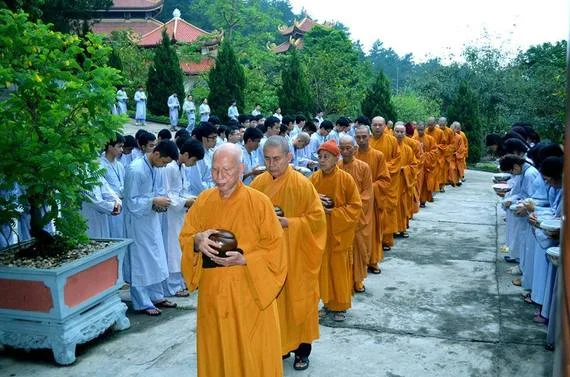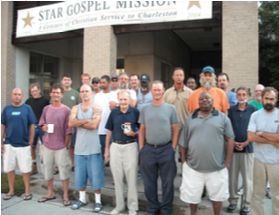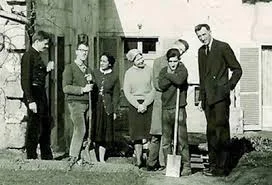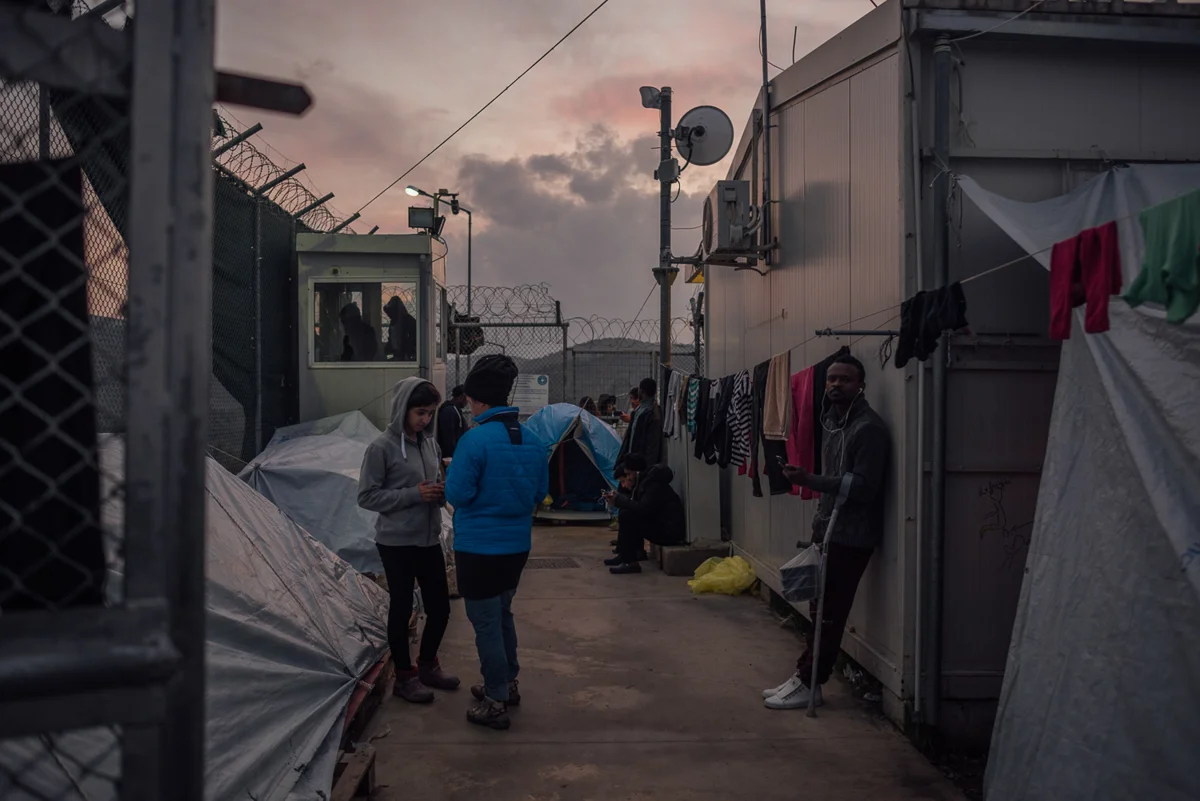A Happier, Healthier, and Cheaper Way To Live: 8 Minute Read
I’ve been co-living for most of my adult life. After living with missionaries in Kenya, I moved into the Star Gospel Mission, then I did it when I was the “garage ginger” and lived with one of my now best friends who I met on Craigslist, and then when I lived in the Landay’s room above their garage. After a breakup at the end of 2012 somebody told me I needed to grow up and get my own place so that people could see me “nesting.” I did. I got a nice condo on Daniel Island and bought new furniture and learned to cook. But I think I scared people a little when I made them dinner at my place and told them how much I loved living at the Star Gospel Mission and how I wanted to move back.
Within 6 months of living alone I was bored and sad, walking 10-12 miles a day on the weekends drinking coffee and beer and listening to music. So I broke the lease on my nice apartment and moved back to the Star Gospel Mission. I had a short stint living with Buddhist monks at a monastery in Vietnam.
Then I lived with a family with five kids on Colonial Lake (that was a nice part of town too, but the difference was I got to be like Uncle Jesse in Full House), then a multigenerational family in Cuba, a British student in Pittsburgh, on a sailboat in a marina with other liveaboards, empty nesters in Manhattan, and now a group of entrepreneurs in Brooklyn.
Healthier: The former surgeon general says that isolation is Americans’ greatest health risk. In Brene Brown’s most recent book she sites a study that found “Living with air pollution increases your odds of dying early by 5%. Living with obesity, 20%. Excessive drinking, 30%. And living with loneliness? It increases our odds of dying early by 45%.” Other studies have suggested it primarily affects white men and those who live in areas most affected by the “keeping up with the Joneses” mentality. There are fewer studies connecting suicide to isolation, but I just read a book about college admissions that connected increasing teenage suicides to high pressure areas, which in 2014 was the leading cause of death other than accidents for Americans between ages 10-34 (according for the Center for Disease Control). Life expectancy increases when we share our lives with others, and co-living can help.
Happier: What I’ve noticed from experience is that when I’ve tried in some small way to love my neighbor and even more so my enemy (meaning those radically different from me), I’ve been surprised at how much they changed me. I’ve been surprised at how my interactions with them benefited my life for the good. But it’s impossible to love the neighbor or enemy we don’t spend intimate and substantial time with. In a society where people are so afraid of each other, I’ve come to believe that the benefit my enemies can give to my life outweighs the damage they can cause, even to the point of death.
My ginger head is poking up in the back left. Photo courtesy of The Star Gospel Mission.
Here’s one of my new heroes, Jean Vanier, who in the 1960’s invited two men with intellectual disabilities to live with him and has since started hundreds of communities around the world where people with intellectual disabilities live with those without: “If we let ourselves be attracted to those who flatter us or who are like us, who share our ideas, then we won’t grow. Growth will come as we come closer to people who are different from us and as we learn to welcome and listen even to those who trigger off our pain.
Every time I try to understand the gospels a little more, I am amazed by the incredible power of the message. At the heart of Jesus’ message is: ‘Love your enemies. Do good to those who criticize you, who hate you. Pray for those who persecute and push you down.’ Our enemy is not somebody far off in a distant land Our enemy is somebody close by who threatens us, who blocks us. Our enemy is inside, not outside, the community.”—pg. 38, From Brokenness to Community, Jean Vanier
Living with those who are different from us, even in the smallest of ways, can help us better understand the world at large and how to overcome and even value our differences.
In 1964, Jean Vanier invited two men with intellectual disabilities to live with him, sparking a co-living movement around the world.
Cheaper: Millenials are less willing and able to own homes. Baby Boomers are less interested in assisted living. I hate it when I see friends and people I love live pay check to pay check working jobs they don’t like, wishing they spent more time with their families and following their passions. I think society gravitates towards this in the pursuit of being “practical,” “responsible,” and because “you got to eat.” But I think that the greatest joy in life is to die for the things you truly believe in long before you take your last breath. I believe what C.S. Lewis says, that if we “put first things first we end up with first and second things. If we put second things first we end up with neither.” This requires margin in time and finance and co-living can help with this, too.
I understand some people love living alone (co-living isn’t for everyone), and more power to them, but for a lot of families the increased time and financial margin would be a huge win.
Here’s a short, non stellar video I made.
Here’s a a simple, very early way for people to sign up starting in New York City (though if lots of people sign up in Charleston or somewhere else I'll work to build this there, too)
Here’s where I’m going:
1) I’m staying with a group of 6 people who share an apartment in Frankfurt. Two of them are in a relationship together and have a child.
2) Next I’ve visiting an intergenerational co-living community in Denmark, where the elderly and students live together.
3) I’ll spend Easter in a L’arche community in Slovenia where those with and without intellectual disabilities co-live:
And a L’arche community in Spokane, Washington.
4) l’ll volunteer for 2 weeks in Lesbo’s Moria refugee camp (off the coast of Greece) with Euro Relief, where more than 5,000 people are living in a camp built for 2,000 with plumbing for 800. Pictures are prohibited for me to take while I’m there, but here are a few news articles:
https://www.aljazeera.com/…/rare-life-lesbos-moria-refugee-…
https://www.theguardian.com/…/this-isnt-europe-life-greece-…
From Aljazeera article in link above.
I’m hoping that from experiencing these different (and mostly extreme) kinds of co-living I can answer two questions:
1) Can a more mainstream form of co-living help our society?
2) If it can help it, can it work? And if so, how?
Here’s why I’m asking for support (including financial):
1) Accountability: In 2009, right out of college, I spent 4 months working at a school for orphans. I wanted to help people, but I really wanted an adventure, and I couldn’t believe that people would help pay for it. I thought I’d tricked them all. But something I would have never expected happened because other people helped me get to Kenya. I felt accountable to their investment in me, took it very seriously, and it sent me on a path that ended up starting IES.
In this case, I’ve already paid for everything. I’m going whether you support the trip financially or not. If you can’t or don’t want to, please don’t. But if you can, know it will create accountability in me that will increase the chances of something meaningful coming out of it.
2) Support: I don’t want to do this alone, and in fact, I can’t. In 2010 when Pete and I set out to visit other models of what we thought IES could one day become, we drove across the country together. Our car broke on the second day and faced with buying bus tickets home, Pete bought another car. (While Pete was signing his papers I took the car for a spin with the sales guy and noticed there was a CD lodged deep into the music player. After 30 minutes with a screwdriver the sales guy finally pulled the CD out. It was a burned CD. Somebody had written a title on it, “God has a plan.”) But Pete is an attorney in D.C. now and says he can’t come with me.
Pete and I needed a lot of people's support to get IES going, and I need it now more than ever.
I plan to share about my experiences on the journey on my Facebook page. If you like me, or like the idea of co-living for you or others, then I’d love for you to invest in what I’m doing.
Here’s what you’ll get in return:
1) If you give $10, I’ll give you a copy of my book, The Definition of Success. Here’s the last testimonial from a working mother and entrepreneur: “The Definition of Success was a great thing for me in terms of self-care and direction-setting, both of which I’m trying to focus on…I’ve asked similar questions to yours over my life, coming up with similar answers that are tinted differently based on my own call, personality, and frankly my risk-tolerance which may also be sin playing a role. I love where you speak about how our communities are not physically designed to foster relationships and what a problem that is…I’m raising my son with an expansive ‘village’ and he’s loving it!…I so appreciate the book’s voice, vision, witness, and bravery. It’s refreshing to connect with a story that doesn’t hang on the cultural norms we are all taught and is comfortable ripping them down and building from scratch based on the gospel.”
2) If you give $25, I’m planning to write at least one essay about the experience. In addition to the book, you’ll get the bonus essay about the trip emailed to you a week ahead before I share it anywhere else.
3) If you give more than $50, then if I decide the business is not going to work, or I try but fail to have at least 10 customers on my co-living platform by the end of 2018, then I’ll give you your money back plus 25% interest. (This is up to the total $2,000 I’m seeking to avoid becoming somebody’s investment strategy for 2018.)
A disclaimer:
—I’m going to a wedding, hopefully a few soccer games, and I’m visiting a few friends in the UK at the tail end of the trip. These two detours will be about 10 days of the 6 week trip. Any money donated will go only to fights and travel related to the co-living research. I’m estimating this to be around $2,000 when it’s all said and done.
I’d love your support and hope you’ll follow along! You can give/support here!




